From the Vice-Chancellor – October 2023
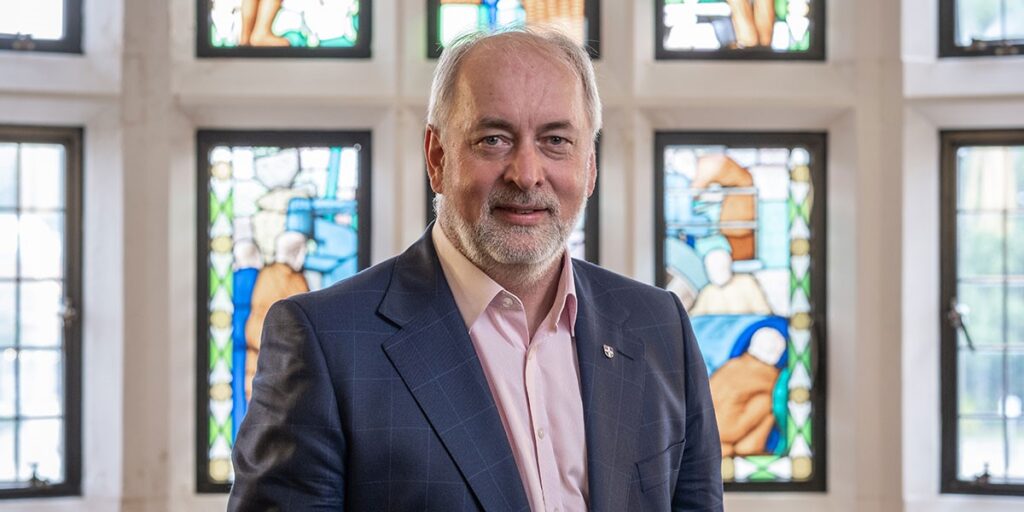
In my October newsletter: the latest Knowledge Exchange Framework, marking Black History Month, the Party Conferences, flagship international event for the Universities Partnership, and reflecting on our academics’ contribution to the RAAC issue.
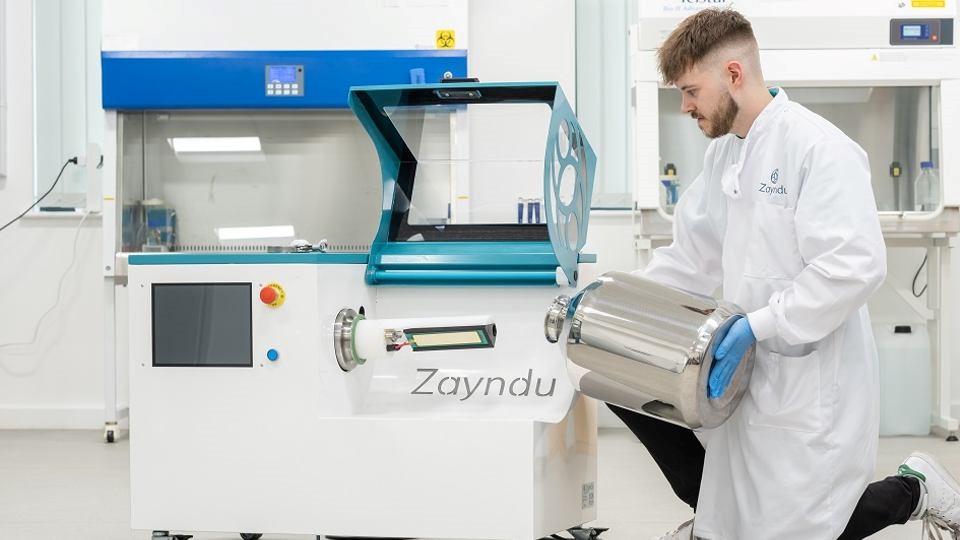
Loughborough excels in latest Knowledge Exchange Framework
At the end of last month we received the outcome of the third iteration of the Knowledge Exchange Framework (KEF), which looks at a range of universities’ activities, such as their business partnerships and their impact on local growth and regeneration.
Institutions are grouped into ‘clusters’ of organisations that have similar characteristics, such as how much research they do and in what subject areas. Loughborough was in Cluster X, described as “large, high research intensive and broad-discipline universities undertaking a significant amount of excellent research”.
In the assessment Loughborough was in the highest quintile – quintile five, classed as ‘very high engagement’ – in three areas: Working with Business; Working with Public and Third Sector; and Intellectual Property (IP) and Commercialisation.
The University’s partnership with adidas is a great example of our excellence in Working with Business. Project teams from across engineering, aerodynamics, ergonomics and sports science have been working with adidas since 2002 to make sport safer and more accessible, to allow people to perform at their best, and to develop the adidas talent pipeline. Earlier this month the partnership was announced as the winner of the prestigious 2023 Royal Academy of Engineering Bhattacharyya Award in recognition of their outstanding academia-industry collaboration.
Loughborough performed strongly in the Local Growth and Regeneration category of KEF, retaining its place in quintile four – ‘high engagement’. An example of our activity in this area is the Healthy and Innovative Loughborough initiative, funded through the Town Deal, that brings together projects to support infrastructure development, attract new businesses, support those wanting to start their own business, and enhance the health and wellbeing of the local community.
The University also improved its outcomes in this year’s KEF in the Public and Community Engagement category.
The KEF results demonstrate the extent, reach and significance of our knowledge exchange activity, and how our work impacts society in positive and sustainable ways, in line with the research and innovation aims of our strategic plan.
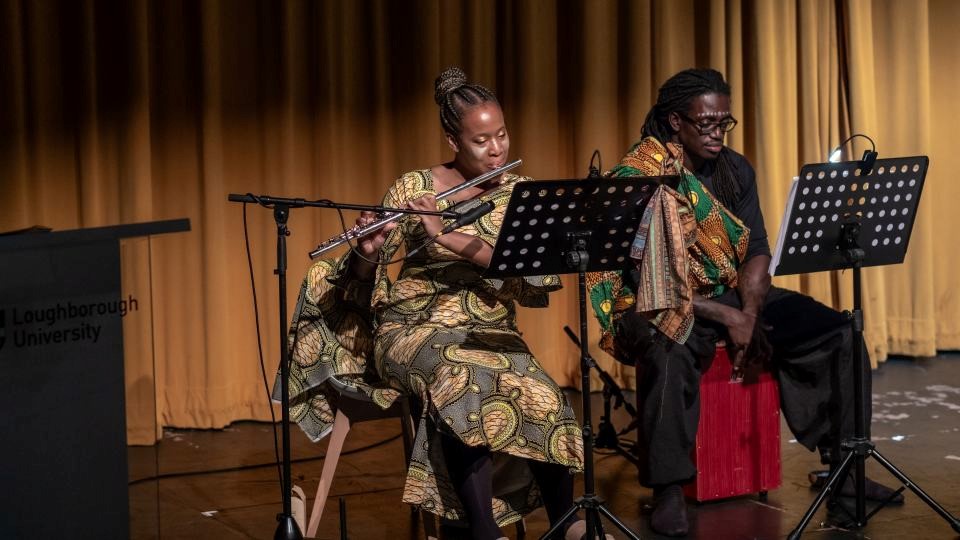
‘Saluting our Sisters’ – marking Black History Month on campus
Throughout October we have been marking Black History Month through a series of events and workshops themed around ‘Saluting our Sisters’. One of the particular highlights of the month was the keynote event on 25 October, when the University’s Equity, Diversity and Inclusion (EDI) team hosted three prestigious speakers.
Through a combination of a talk, poetry and personal accounts, Carol Leeming MBE, the renowned poet and playwright, explored the history and legacies of slavery and the racism still entrenched in our society.
Tracey Fox, an expert in workplace race relations, spoke about the legacy of slavery and its impact on conflict in the workplace, specifically in higher education. She explored the way conflicts arise from stereotyping and assumptions, and the inequitable outcomes for staff and students of racialised minority backgrounds.
Actor, writer and educator Nicole Acquah then performed her play, ‘Sankofa’, which was shortlisted for the Women’s Prize for Playwriting. ‘Sankofa’ interweaves live music and African storytelling to explore second-generation Ghanaian experiences and what it means to belong to the African Diaspora. The play was followed by an experiential African art workshop led by the Loughborough EDI team.
The Black History Month events culminated with Professor Charlotte Croffie, our Pro Vice-Chancellor for EDI, chairing a panel of fellow Black female professors – Amanda Daley, Patricia Carillo and Sheryl Williams – as they reflected on their journeys to becoming professors and their experiences within the UK academy.
I hope you managed to see some of the wonderful events over the course of the month, and will take a look at the resources available on the dedicated website.
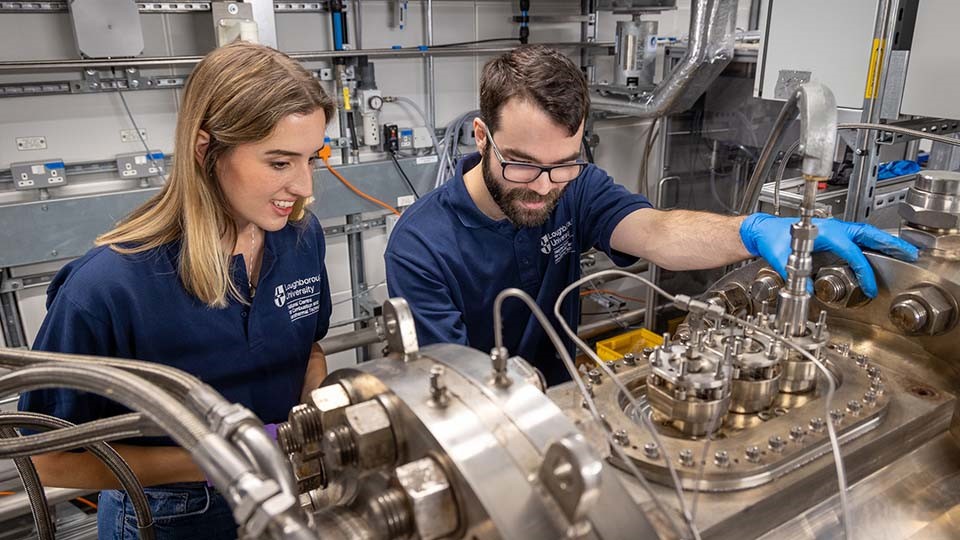
Party Conferences bring opportunities to engage influencers
Every autumn, the UK’s political parties hold their annual conferences – gatherings of politicians, party members and affiliated groups who discuss key issues and current and emerging political agendas.
This year, staff from the University’s Policy Unit attended the Conservative and Labour Party Conferences to connect with key attendees and gain further insight into the issues that Loughborough could influence through research, innovation, education and skills development.
The Policy Unit team engaged with representatives from both political parties and senior staff at influential organisations about the Centre for Research in Social Policy’s Minimum Income Standard, in the broader context of support for those on low incomes. They also had productive conversations about our strategic theme of sport, health and wellbeing, discussing potential future partnerships, visits to campus and how Loughborough can contribute to the ‘prevention’ agenda.
Net Zero was a key feature of both conferences, with fringe events, exhibitions and a Hydrogen Zone that brought together a number of large companies with interests in the issue. This is an area that Loughborough can certainly influence.
The Policy Unit team were able to share our emerging plans for The Hydrogen Works – a Midlands-wide suite of research, innovation, advanced manufacturing, training and conference facilities and capabilities. It’s an exciting concept. At its heart is a £40 million hydrogen advanced manufacturing and innovation facility, co-located with commercial partners on the University’s Science and Enterprise Park (LUSEP) and capable of supporting up to eight on-site innovative scale up activities at any one time. It will enable around 100 senior academics from across the region to work together and with industry to deliver leading-edge hydrogen research and innovation.
We would also look to develop future leaders for the sector through, for example, an innovative hydrogen skills exchange with the East Midlands Institute of Technology Future Energy Skills Hub, a £13 million initiative creating the advanced workforce in clean energy for industry’s future.
The Hydrogen Works is an active partnership with the East Midlands Freeport and East Midlands Hydrogen, which is seeking to attract inward investment and develop the hydrogen economy in the region. With existing partners, and others who may get involved, we would have the capability and ambition to make a significant contribution to realising the role that hydrogen will play in a sustainable future.
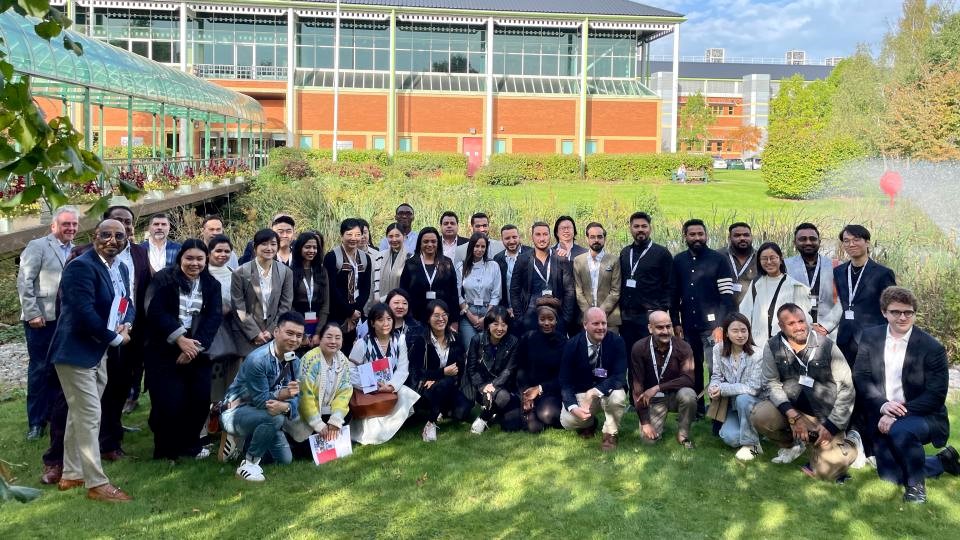
Universities Partnership hosts flagship international event
At the start of this month, the University joined forces with Leicester and De Montfort universities to host a week-long series of events to showcase the county as an attractive destination for international students, with a view to encouraging greater numbers to choose to study in the region. The initiative was believed to be the first of its kind in the country, with all universities from one region working collectively to welcome guests from around the world.
The event was a flagship project of the Universities Partnership – a civic agreement signed in 2022 by Loughborough, De Montfort and Leicester universities and the county’s local authorities. We have pledged to work together to drive economic growth and tackle social challenges across the region through projects in five areas: education; the economy; sport, health and wellbeing; environmental sustainability; and arts, culture and heritage.
Together, Leicestershire’s three universities have a big impact locally, contributing a total of £1 billion to the Leicester and Leicestershire economy, supporting nearly 17,000 jobs. The partnership enables us to combine our diverse expertise to tackle the challenges which face us all, and to provide an even greater positive impact on our region.
Loughborough research plays a central role in RAAC media coverage
As autumn approached, the media headlines for several weeks were dominated by the issue of RAAC (Reinforced Autoclaved Aerated Concrete), which was widely used in construction during the 1960s and 70s in buildings throughout the country. As I hope you noticed, Loughborough’s academic expertise was at the forefront of the coverage.
If you’re still unsure what RAAC is, and why people are concerned about it, Professor Chris Goodier from the School of Architecture, Building and Civil Engineering explains in this short video. The Loughborough team – Professors Chris Goodier, Sergio Cavalero and Chris Gorse, and Drs Karen Blay and Ana Blanco – have been studying RAAC for several years, undertaking NHS-funded projects in hospitals and advising the Department for Education and other top-level Government bodies on the risks associated with the material and how best to manage them. Their work has been instrumental in identifying the main issues with RAAC, developing recommendations and defining a way forward.
Loughborough’s expertise appeared in more than 900 newspaper, radio and TV items, including BBC Breakfast, BBC Newsnight, The Independent, The Telegraph and The Guardian. The research was referenced in the media in 17 countries, including the US, India and Sweden.
This is a great example of our world-leading research being at the centre of significant societal discussions and how this positioning can raise the profile of the University’s national and global reputation, as outlined in our strategy. We were able to deliver such outstanding results because the team engaged with the media, and our PR team, and explained their research in an accessible way. When issues begin to gain media attention and Loughborough has relevant expertise, we must make sure we capitalise on and maximise these opportunities.
Vice-Chancellor's Communications
Opinions and comment from the Vice-Chancellor, Professor Nick Jennings

